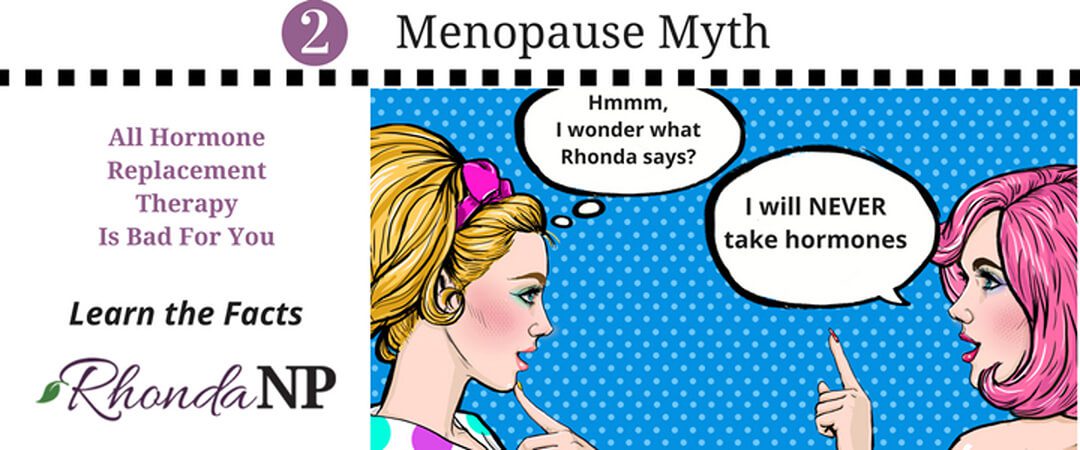Hormone Replacement Therapy got a bad reputation in 2002. It amazes me when I think about the media and how powerful it is. News breaks about an emotional topic, such as our health, and immediately it becomes ingrained as truth in our social memory. Once spoken, that “truth” is nearly impossible to walk back.
In 2002 news hit that “estrogen causes breast cancer”. That “truth” so locked in our social gray matter, that even today 14 years later, confronts me in my practice. As I counsel a patient eligible for potential hormone replacement, guess what her first question is? “Well, doesn’t hormone replacement therapy cause breast cancer?!”
In some rare genetic dispositions, I would certainly not recommend it. However, the majority of women should not only be fine but could realize great benefits from use.
I have said for years, however, that not all hormones are created equal. It is important to pick the right kind AND the right form to be safe, effective, and free of side effects. Every woman is unique with a family history to factor in as well.
So, that brings me to an important area in Hormone Replacement Therapy – Synthetic Hormones vs. Bio-Identical Hormones.
These two areas are vastly different. Your understanding will help guide informed decision-making if you consider hormone replacement to support your menopause symptoms.
Synthetic Hormones vs. Bioidentical Hormones –
What’s the Difference?
Synthetic Hormones
Synthetic hormones have been used for decades. Mainstream medicine prescribes this type of hormone most commonly to counteract menopause symptoms. It is estimated however, that one-half of women quit taking their hormone replacement therapy after one year. The reason…those nasty side effects!
The chemical structure of synthetic hormones differs from your body’s own hormone production. They come in many forms and from various sources.
The first synthetic hormone to hit the scene had horse urine as its source. Some consider this version a natural estrogen. I guess I would agree if you were giving it back to the horse! I can say for sure, I personally would not choose this source of hormone.
Time and technology have produced additional synthetic hormones. But remember, these hormones contain a different chemical structure than your bodies hormones. It makes sense that when you swallow something chemically foreign to your body you get side effects.
Bio-Identical Hormones
Bio-Identical Hormones are the same chemical structure that your body produces. They may or may not be plant-based. Bio-identical hormones are available a few ways.
They are sold over the counter in some forms. Also, a compounding pharmacy creates them with a specific prescription from your healthcare provider. I suggest finding a health care provider with education and experience in creating this form. In doing so, you ensure safe monitoring and proper and effective dosage.
In addition to picking the right chemically structured hormone, method of delivery is critical.
So, let me break it down for you. Estrogen is not preferred to be taken by mouth. Progesterone, however, is safe to take in that form, but only the bio-identical form.
Why not estrogen by mouth?
When estrogen is broken down and metabolized in your body, it can go down unhealthy pathways as it travels through your GI tract and your liver. This path can cause many unwanted side effects.
Concerns such as high blood pressure, increases in liver enzymes, triglycerides, inflammation, clotting effects, and carbohydrate cravings. It can cause gallstone formation. For these reasons, I suggest other forms of administration, such as transdermal application, which means applying it on your skin. These forms can come in gels or creams and are safe and effective. I also like this form as it can be more individualized to your needs.
Estrogen and progesterone usually get the most attention, but do not forget about testosterone as an important factor. There are also synthetic and bio-identical forms for this hormone, and obviously, I recommend the bio-identical form. Like estrogen, I prefer the topical form.
Although I cannot cover all the information surrounding this complex world of hormone replacement, stay tuned as I will share bits and pieces in my upcoming blog posts.
References:
Fournier, A., et al., “Unequal risks for breast cancer associated with different hormone replacement therapies: results from the E3N cohort study” Breast Cancer Res Treat 2008; 107(1):103-111.
Smith,P., What You Must Know About Women’s Hormones. Garden City Park, NY: Square One Publishing, 2010.


